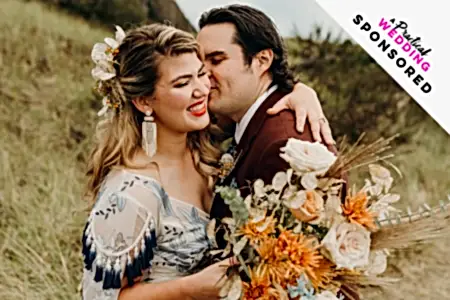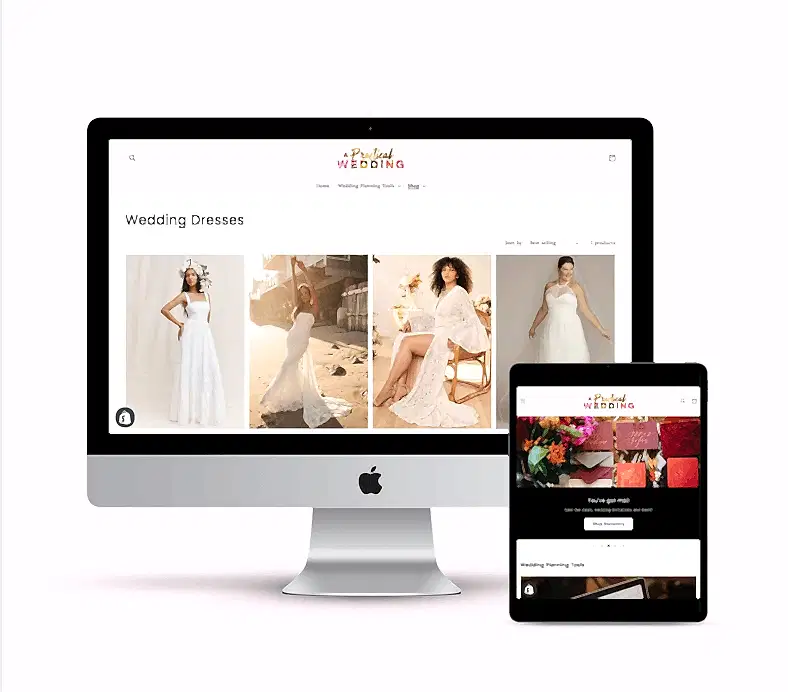

When I first started my business, I heard two pieces of advice repeated over and over again in photography forums online: back up your work and get business insurance. My company was in its infancy at the time, but I figured that if enough people were saying these things, there was probably a kernel of truth to it. So in the mad dash before my first big wedding, I faxed an application for business insurance and forked over a few hundred dollars for the comfort of knowing that my gear would be protected. Turns out? Nothing happened that year. Not even a lens drop. But the next year? My camera got stolen and my hard drive failed. At the exact same wedding. So thank God for those photography forums.
Prior to having my gear stolen, my only experience working with insurance companies was with health and auto insurance. Which is why, even though I readily signed up for business insurance, I was initially skeptical of its purpose. Would the benefits outweigh the costs? (In my case: a resounding yes. That policy more than paid for itself when I got my camera stolen.) I think the same can be said of many small business owners. When you’re deep in the hustle, and every penny of your budget needs careful allocation, it can be hard to find the space in your priority list for what if’s. So today, in partnership with TrustedChoice.com (who represents independent insurance agents, and who you might remember from this super helpful post about choosing an insurance agent) and in conjunction with our entrepreneurship series, we’re talking about a different side of the hustle: small business insurance. Specifically: who needs it, what it’s for, and (since you’re all asking) how much it costs and what it covers.
TrustedChoice.com let me talk with Paul Martin again (who helped us on our last post.) With twenty-nine years of insurance industry experience under his belt, Paul is a nationally recognized expert and educator on insurance issues and coverage (not to mention, a super nice guy who didn’t even break a sweat when I pestered him for over an hour about the ins and outs of small business insurance). Paul has experience as a claims adjuster, underwriter and agent, so he more than knows his stuff. That said, if you have questions that aren’t covered here, leave them in the comments and he might just pop in to answer them. Now, onto business:
APW: I think the first question most small businesses owners ask themselves is do I even need business insurance? Where do I start figuring that out?
Paul: All you need to do is ask yourself two questions: can I lose my stuff and can people sue me? Now, there are a bunch of sub-categories in there, but that’s where you start. What do you have that you would hate to lose to a fire, tornado, theft, flood, etc.? What do you want back? You’ll want to start by creating an inventory list and figuring out what you have that you’d hate to lose.
APW: Okay, so let’s say I’ve done my inventory check. Is there anything I might have that business insurance isn’t going to cover?
Paul: Insurance companies don’t like it when they don’t know where you are. They don’t respond with much coverage if the property is not on the premises (i.e., if you travel with your inventory, like a wedding photographer might). For these kinds of circumstances, there’s a whole category of insurance called inland marine. It was developed over four hundred years ago and is specifically designed to be very flexible to insuring stuff that’s on the move. Things on the move might include photography equipment on the go, or a truckload of supplies in transit. Basically anything that’s not nailed down. Inland marine coverage can easily be attached to a package of insurance coverage options.
APW: What if I have a renters’ insurance policy that covers my physical property (my laptop, for example) and some personal liability. Do I still need business insurance? Or is my renter’s policy enough?
Paul: It depends on your business. Business policies cover a whole lot of things that a homeowners’ or renters’ insurance policy simply can’t do. The primary reason to have business insurance is that it covers professional liability. Lots of renters’ and homeowners’ policies (and you should check yours to see if this applies to you) exclude business pursuits in their personal liability coverage. Now, there are occasionally some exceptions, but they are limited in scope. For example, if you’re over Meg’s house and you’re having a work meeting and you injure yourself during the meeting, most renters insurance policies wouldn’t exclude that from their coverage, even if it was technically “in the pursuit of business.” Other policies make exceptions for relatively minor business pursuits, like if you have a teenage daughter who has a summer business of mowing lawns. She is only going to make $1,000 for the whole summer, so even though she’s doing business, it’s minor enough that it would be covered under a renters’ or homeowners’ policy.
If you’re having a hard time figuring out where your business falls in the equation, ask yourself some more questions: do I have any kind of professional liability associated with your business? Do I have employees who are going to be doing business on my behalf? Can I see myself getting (reasonably) sued? If you can’t think of anything (you have no exposure to the public, no clients are coming on the premises, you can’t hurt somebody, etc.) then you probably don’t need business insurance. For example, if you own a small greeting card business out of your home, you have very low professional exposure and are unlikely to have any kind of professional liability associated with your business. And since your renters or homeowners insurance will cover a certain amount of business property (and paper isn’t very expensive), you probably don’t need extra coverage for your inventory. (Just keep in mind that some renters’ and homeowners’ deductibles are higher than business insurance deductibles, so it might be a good idea to crunch some numbers and see if business insurance would be less expensive in the event of a loss.)
APW: Okay, let’s assume I’ve decided I need business insurance, but I’m more concerned about my property than my liability. I want to talk about the getting things back part. I’ll admit I didn’t exactly read my insurance policy when they first issued it to me. So I was pleasantly surprised when I got the full replacement value of my camera back after it was stolen. (I got what I paid for it; not what it was worth when I lost it.)
Paul: Your surprise might be because replacement cost is actually a new concept introduced in the last thirty years. Technically it’s against indemnity laws to leave someone in a better position than they were before a loss (i.e., if my camera got stolen, and the replacement value of my camera means I now can buy two new cameras). But insurance companies started offering replacement value coverage out as a way to protect people from being put out of their homes in the event of an emergency. (Let’s say your house burned down. Without receiving the full replacement value of your house, you could end up homeless, which insurance companies don’t want.) Now business and auto insurance are moving in that direction too.
That said, there are reasons for choosing a policy that offers replacement value of your property and reasons for choosing a policy that offers actual cash value, which is your purchase cost minus depreciation. Or in layman’s terms: what it’s worth now. Most of the people reading APW would want a policy that offers replacement value. But let’s say you’re an older person and you own something like a bait shop. If your building is destroyed in a hurricane, you’re probably not going to replace it. You’re not interested in rebuilding your business. You are probably just going to sell the lot that your bait shop was on and maybe retire and go fishing for a while.
APW: Why would you want to do that? Wouldn’t you always want to receive the maximum replacement value on your assets?
Paul: The premiums on actual cash value policies are much lower than replacement cost policies. So you pay less, and you get less back in the event of loss.
APW: Speaking of payments, how do insurance policies get calculated? Can we give readers a ballpark for what they could expect on an average policy? I think my photography policy was something like $600 a year for a million dollars of liability coverage and $1,000 a year for up to two million dollars of liability coverage, plus coverage on $20,000 or so in equipment.
Paul: That sounds about right for the kind of policy you’re describing. But it’s hard for me to give ballpark figures, because price estimates are more of an art than a science. An agent is going to assess everything about your business, from its location, to relative risk, and then come up with an amount that feels right. The best thing you can do is to work with someone who has experience and knowledge of your industry, because they’re going to better understand your industry, your geography, and how at-risk you are. (For example, have you been in business for fifteen years without any losses? Your premium might be lower than someone who just started out.) But it’s important to know that ninety percent of the premium associated with your policy is related to liability coverage, not property coverage. And that’s because for most businesses, liability is the biggest exposure they have.
APW: I feel like I have a rough understanding of liability coverage, but mostly in a “someone could trip and fall over my equipment” kind of way. And I have no idea what errors and omissions means, except that we’re supposed to have a policy that includes it. Can we talk about both of those terms for a minute?
Paul: Sure thing. Liability is the principle that says someone else can sue me because I was negligent. The trip and fall you mention is called a tort. It’s an otherwise ordinary accident
Then there are errors and omissions. Errors and omissions (which is usually referred to as professional liability insurance) means there was a professional error, or omission—not doing something you should have done. Certain businesses have more professional exposure than others: lawyers, doctors, photographers, hairdressers (it’s why malpractice insurance is so high). Errors and omissions could include things like if you ruin a client’s hair the Friday before her wedding. Or you miss a key shot as a photographer (or your hard drive fails after a wedding). Professional liability coverage protects you when someone is suing you for you making an error. It’s typically not covered under general liability, so you would want to make sure to add coverage to your policy if you think you need professional liability coverage especially if you’re in one of those professions I mentioned earlier that have a higher professional liability exposure.
APW: Sometimes I feel like these numbers we throw out are so crazy. Is anyone ever really going to sue me for a million dollars? (Then again, I feel like I hear about million dollar lawsuits against wedding photographers every other year, so maybe the answer is yes.) But how do you go about figuring out how much coverage is enough?
Paul: How much is enough? There is no right answer for everybody. But you can start to get a feel for what that number might be by answering a few more questions for yourself. What could you really stand to lose? What can someone reasonably sue you for? A million dollars is a good place to start, but it depends on what business you’re in. Remember that liability is decided by a court. It’s decided by a jury. For example, let’s say you book an incredibly high-end wedding with a tech superstar from Silicon Valley, and the wedding costs a million dollars. Photography was their top priority, so they hired you to take incredible photos of the event. But then on the way home from the wedding, something malfunctions and you lose all the photos. Can they reasonably argue that the only way to get the photos back is to have another million-dollar wedding? It’s possible. Maybe not likely. But those are the kinds of scenarios you should be thinking of when you consider how much coverage you want.
APW: Are there other kinds of coverage I’m not thinking of?
Paul: There’s a whole other category of property insurance that deals with dishonesty, called Crime Insurance. There are tons of approaches and options to Crime Insurance (maybe you want coverage of employee theft). Crime insurance is one of those things that can be its own policy, or it could be just a coverage part of a package policy.
APW: Oh that’s a good point. A friend owns a jewelry store and was recently robbed. Would crime insurance cover something like that?
Paul: Funny you mention that. Jewelry is actually its own category, because the inventory is incredibly valuable, very small, and hard to identify. So there are insurance specialties that cover just jewelers. That’s actually why the best thing to do is to reach out to a reputable agent in your area; because there can be so many special circumstances that go into covering your business, and you want to make sure you’re working with someone who understands your industry (Editor’s Note: On TrustedChoice.com, you can actually select your industry from a dropdown menu and choose agents who only deal with that kind of business. They even have Internet publishing as an option, which happens…never.)
APW: Are there any other special circumstances I might be forgetting, that would be relevant to our community?
Paul: If you have anyone who owns a small business that utilizes a car or van for business (like a florist or baker, who does deliveries as part of their job), they may want to look into commercial auto insurance. It covers your car in a way that personal auto insurance won’t.
APW: Any other advice for small businesses who read APW and might be thinking about getting business insurance?
Paul: A few things: first, remember that just because one insurance company won’t cover something, doesn’t mean that another won’t. So don’t be afraid to shop around (or really, it’s your Trusted Choice agent’s job to shop around for you). Also, as a small business owner, you want to think of your insurance agent the way you would any other service professional, such as an accountant or lawyer. Your relationship with your insurance agent should be an ongoing, recurring trust relationship, and it’s their job to have specialized information that will help you out when you need it. You want to find someone who shops faithfully, truthfully, and that you trust.
Lastly, if it feels at all overwhelming to think about all the different aspects of your business you want to cover, just come back to these four questions:
- What can you lose?
- What do you care about?
- What special circumstances go hand in hand with your business?
- And what’s the worst-case scenario you can imagine yourself in?
If you can answer those four questions, you’re off to a good start.
Small business owners: IF YOU HAVE more QUESTIONS ABOUT business INSURANCE, LEAVE THEM IN THE COMMENTS! WE’LL DO OUR BEST TO GET THEM ANSWERED BY TRUSTED CHOICE, EITHER IN THE COMMENTS OR IN A SEPARATE POST!

This post was sponsored by Trusted Choice. Every Trusted Choice agent has signed the Trusted Choice Performance Pledge, which is based in the philosophy that you’re a person, not a policy. Trusted Choice independent agents can offer almost any kind of insurance you can think of—home, life, auto, hair salon, RV, motorcycle, valuable collectibles, helicopter, internet business, and the list goes on. Click here to get in touch with a Trusted Choice insurance agent today, and find the right policy for your needs! (For non-business insurance needs, click here.)
The information provided in this post is intended by Trusted Choice and APW to serve as general advice and guidance for all readers. The advice herein does not constitute legal or financial advice, and Trusted Choice and quoted professionals do not take legal or financial responsibility for this information. This article does not take the place of a consultation with a legal or financial advisor.






